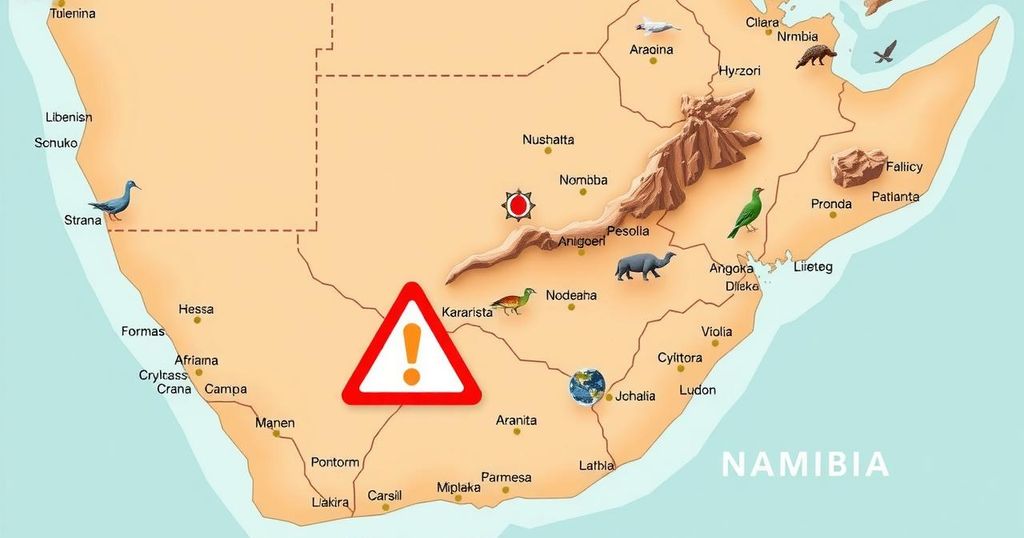Namibia Reports First Cholera Case in Ten Years Amid Regional Outbreak
Namibia has confirmed its first cholera case in a decade, linked to Angola’s ongoing outbreak. A 55-year-old woman has recovered, prompting heightened surveillance. The Africa CDC has supplied vaccines to Angola, highlighting the need for broader distribution. Access to clean water and sanitation is critical in preventing outbreaks, especially as cholera cases remain a significant concern in Africa.
Namibia has announced its first cholera case in a decade, confirmed by the Africa Centres for Disease Control and Prevention (CDC). A 55-year-old woman from the Kunene region, who showed symptoms of diarrhoea, has since recovered and has been discharged from the hospital. Even though she had no recent travel history outside the country, her case has initiated enhanced disease surveillance and response efforts from health authorities.
Jean Kaseya, the director of the Africa CDC, attributed this case to the ongoing cholera outbreak in nearby Angola, which has reported 6,564 infections and 237 deaths since January. The geographic proximity of the Kunene region to Angola raises concerns about potential cross-border transmission of the disease. Nonetheless, Kaseya mentioned that Angola’s infection rates are currently declining, and active measures are in place to manage the outbreak effectively.
In response to the situation, the Africa CDC has supplied 2,000 oral cholera vaccines to Angola’s healthcare workers. However, Kaseya emphasized the necessity for additional resources to ensure wider vaccine distribution to curb the outbreak effectively. Cholera, caused by bacteria transmitted through contaminated food and water, poses a significant health risk and can lead to severe dehydration and mortality within hours without proper treatment. Vulnerable populations, particularly children under five, are at heightened risk.
To prevent future outbreaks, access to clean water, sanitation, and effective vaccination programs is critical. The World Health Organization (WHO) indicated a 12% decline in cholera cases across Africa in 2024, though deaths rose by 3.1%. Africa recorded the highest number of cholera cases and fatalities globally in January, according to a recent WHO report. Namibian health officials are now on heightened alert and are reinforcing measures to avert further cholera infections.
In conclusion, Namibia’s first cholera case in ten years highlights the urgent need for enhanced health surveillance and preventive measures. The connection to the regional cholera outbreak in Angola underscores the risk of cross-border disease spread. The Africa CDC’s efforts, along with the need for further resources, point to the importance of maintaining public health readiness and ensuring access to essential health resources to combat cholera effectively.
Original Source: www.arise.tv




Post Comment